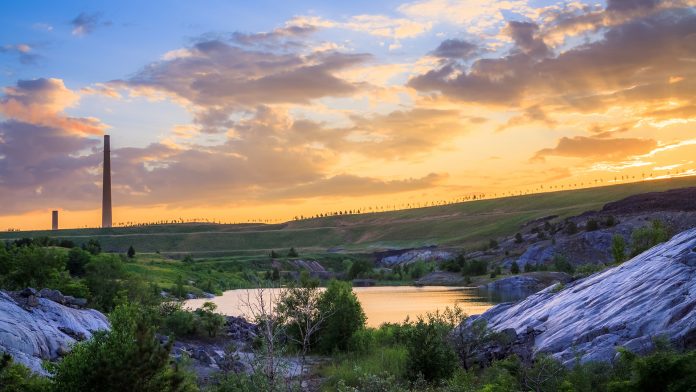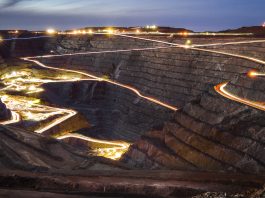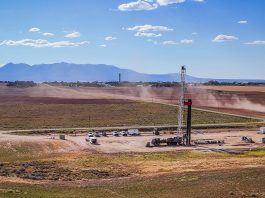Professional Geoscientists Ontario discusses its work and role in regulating geoscience activity, including mineral exploration and development, in Ontario, Canada.
Ontario is home to a vast mining community with 35 active mining operations as of 2023. Ontario alone produced C$13.5bn in the year 2022 through mining a diverse set of metals and minerals, including precious and base metals, and non-metallic minerals.
Spearheading these operations are professional geoscientists whose knowledge and expertise are invaluable for not only finding these deposits but also employing methods to most effectively remove them from the earth, safeguard the environment, and safeguard the public. As a result, it is important that geoscientists are held to strict standards.
The Professional Geoscientists Ontario (PGO) is an organisation concerned with the standards of conduct and practice of geoscientists across Ontario. Its work, conducted by a small, professional staff, ranges from reviewing applications to disciplining professional misconduct, and monitoring practices to protect the public and the environment.
The Innovation Platform spoke with the PGO to find out more about its work and the importance of regulating geoscience activity.
Can you summarise the work of PGO and how you help to regulate geoscience in Ontario? Why is it so important that geoscientists are strictly regulated?
The Professional Geoscientists Ontario is the licensing and self-regulatory body responsible for Ontario’s geoscientists. Our mandate is to serve and protect the public and the environment by regulating registered geoscientists in Ontario and advancing professional practice. PGO is governed by a 20-member Council and technical committees comprising both professional geoscientists and members of the public, and is supported by a small, dedicated staff.
Many professions in Canada are self-regulated, as mandated by the provincial and territorial governments. All licensed professionals play a role in the maintenance of and adherence to the standards of practice set by their professional community. In this way, they protect the integrity and reputation of their profession and protect the public at the same time.
PGO was created in 2000 when the Professional Geoscientists Act (PGA) received Royal Assent on 23 June 2000. The PGA requires that geoscientists who practice in Ontario are registrants in good standing of the PGO.
To remain in good standing, they must maintain standards of practice and ethics and be accountable for the decisions they make and the advice they provide. This self-regulating system is preferred as geoscientists are the most knowledgeable about their profession and can offer their expertise regarding legislation and regulation set by the government.
Regulating geoscience activity is important because the work geoscientists do on a daily basis has important implications with respect to the protection of the public and the environment. Geoscience professionals apply their knowledge about the Earth’s structure, natural processes and composition, including soils, landforms, rocks, minerals, subsurface and surficial water and their interactions.
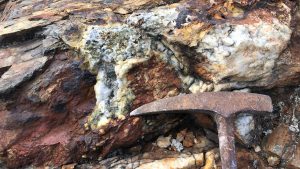
Geoscience is an exact science incorporating mathematics, physics and chemistry, but it’s also an art that involves a lot of practical experience, as well as lengthy and specialised training to do it well. They work closely with other professionals and experts from many disciplines to support accurate and trustworthy subsurface interpretations and decisions. Broadly speaking, geoscientists work in two main areas, the minerals and metals sector, including mining, and the urban development sector, including all things related to building infrastructure and how that relates to soils and water quality. Their activities include, but are not limited to:
- Identification and development of mineral deposits, mining operations, mine closure and reclamation;
- Management and remediation of contaminated sites related to both mining and non-mining activities;
- Informing decisions on how best to maintain the balance between the development and preservation of the natural environment;
- Management of excess soils resulting from the building of infrastructure, a significant responsibility in large urban areas;
- Management of water supply, quality and quantity; and
- Assessing and managing the risks of geo-hazards, including earthquakes, volcanic eruptions, landslides, flooding and erosion.
How, as an organisation, do you ensure that work by geoscientists in the area is carried out responsibly and sustainably?
To be accredited as a Professional Geoscientist (P. Geo.), applicants must meet specific knowledge, experience, and reputation standards to ensure their work is carried out to the highest standards possible. The knowledge requirements relate to specific courses taken during undergraduate and graduate university education.
Geoscientists in training undergo 48 months of training under the supervision of a licensed P. Geo. Like other regulated professions, including doctors, architects and lawyers, professional geoscientists must be registered, adhere to a code of ethics and be held individually accountable for their work.
The Professional Geoscientists Code of Ethics states that professional geoscientists shall “be guided in his or her professional conduct by the principle that professional ethics are founded upon integrity, competence and devotion to service and the advancement of human welfare” and “have proper regard for the natural environment in his or her work.”
When regulating geoscience activity, PGO employs several different tools to ensure that the highest professional standards are met and maintained. These tools include information, education, continuing education opportunities, seminars and professional practice guidance manuals.
We also have a complaints and discipline process and can sanction registrants for breaches of our code of ethics, incompetence and other serious infractions. Any member of the public or other P. Geo. can make a complaint about the work or behaviour of a P. Geo. or report an unlicensed geoscientist. Complaints about unprofessional conduct or incompetency may be made via our website by both registrants and members of the public. If needed, they can also be anonymous.
When complaints are made, a three-stage process is set in motion to ensure a thorough investigation involving the PGO Registrar and the Complaints Committee. The complaints process protects the public interest, welfare, and safety.
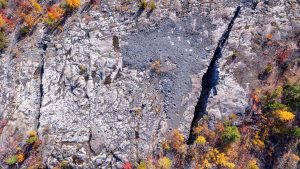
Professional Geoscientists must also complete a required number of Continuing Professional Development (CPD) hours to remain in good standing as registrants. This ensures they possess up-to-date knowledge, skills, and abilities relevant to their area of practice.
To assist with this, PGO provides learning opportunities for registrants on our website and regularly alerts registrants to other relevant professional development opportunities offered by other organisations.
What are the major challenges you face in governing the sector?
One of the major challenges we face is creating awareness with the general public about the significant work geoscientists do, which contributes to their safety and quality of life, as well as the collective effort made by PGO and its registrants to ensure that professional geoscientists practice to very high standards.
We are always looking for new ways to reach out to the public, raise awareness about the professional geoscientists in their midst and the nature of the work that they do.
How do you work with government to maintain high standards within the geoscience sector?
The province of Ontario has entrusted PGO with the responsibility of regulating geoscience activity in the province. This is done through registering geoscientists, admitting only qualified applicants who meet the necessary standards of knowledge and experience, maintaining standards of practice and ethics, responding to complaints concerning our registrants, disciplining when necessary and encouraging continuing professional education on best practices in the field.
PGO reports to the Minister of Mines. The Government of Ontario also appoints certain Council positions to ensure public representation at the Council table.
PGO is also currently conducting a review of the Professional Geoscientists Act, 2000 (PGA) to further clarify and improve the practice of professional geoscience in Ontario. We recently requested feedback from the public and Professional Geoscientists as part of this review. Recommendations for changes in legislation will then be submitted to Ontario’s Ministry of Mines for their consideration.
PGO has developed a constructive working relationship with various Ontario government departments and engages them, for instance, to advise on new or proposed amendments to existing statutes and regulations to ensure they are aligned with the self-regulatory process. At times, PGO works with government representatives to develop guidelines to assist members in complying with regulatory requirements.
Please note, this article will also appear in the fifteenth edition of our quarterly publication.

